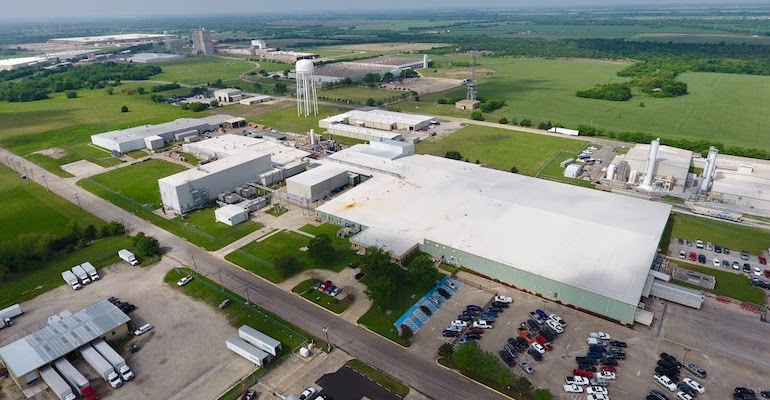Solvay Adds Thermoplastic Composite Capacity at South Carolina Plant
A key driver for the world-class facility based in Greenville is growing demand from energy companies and the aerospace and automotive sectors.
October 5, 2021

Solvay has completed installation of its new thermoplastic composites (TPC) manufacturing facility at its Greenville, SC, site. At full production capacity, the new line will add more than 30 positions at the 27,000-square-foot facility.
The project represents a major milestone in Solvay’s efforts to industrialize its TPC capacity. A key driver for the world-class facility is growing demand from energy companies and the aerospace and automotive sectors. The new product line will have the ability to manufacture unidirectional composite tape from a range of high-performance polymers, including PVDF, PPS, and PEEK.
“The TPC solutions that will be manufactured in our Greenville facility will help our energy, aerospace, and automotive customers achieve better environmental responsibility by making cars and planes lighter, thereby reducing emissions,” said Mike Finelli, President of Solvay’s growth platforms. “Our new capacity and differentiated technologies will allow us to expand with our customers as TPCs gain momentum in a growing number of applications and play an important role in the energy transition.”
The Greenville facility is part of a series of recent strategic investments in line with the group’s commitment to build the infrastructure required for the growing TPC market. Other recent commitments to the industry include Solvay’s addition of capacity for TPC tape in Anaheim, CA; two new R&I centers in Brussels and Alpharetta, GA; and Solvay’s membership in the TPRC consortium.
The Greenville facility uniquely positions Solvay and its proprietary technologies to satisfy a range of applications, said the company. Solvay’s TPC portfolio includes Evolite composites based on resins such as PPA, PPS, and PVDF that offer reliability and lower total cost of ownership in markets such as energy and automotive, and APC tapes based on matrices such as PEI and PEKK, which offer weight and cost advantages in aerospace and urban air mobility applications.
About the Author(s)
You May Also Like

.jpg?width=300&auto=webp&quality=80&disable=upscale)

